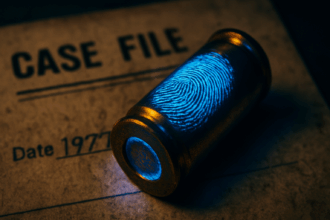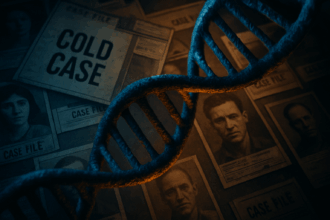Scotland has become the first nation in the world to publish a special code that governs the use of DNA DNA, or Deoxyribonucleic Acid, is the genetic material found in cells, composed of a double helix structure. It serves as the genetic blueprint for all living organisms. Read Full Definition and other biometrics data
DNA, or Deoxyribonucleic Acid, is the genetic material found in cells, composed of a double helix structure. It serves as the genetic blueprint for all living organisms. Read Full Definition and other biometrics data Information in analog or digital form that can be transmitted or processed. Read Full Definition in a criminal justice setting.
Information in analog or digital form that can be transmitted or processed. Read Full Definition in a criminal justice setting.
Biometrics is the statistical analysis and measurement of an individual’s unique characteristics. The principle of this technique is that an individual can be accurately identified and verified by their physical, biological, physiological, or intrinsic behavioral traits. Biometrics have been widely used and accepted by the public in crime solving due to their ability to improve the efficiency of the criminal justice system.
On November 16, 2022, Scotland became the first nation in the world to implement a national code of practice that guides the police on how to use biometric data and other related technologies.
Scottish Biometric Commissioner Dr. Brian Plastow stated that there had been concerns raised about the ethics of using biometric surveillance technology. He said the new Code of Practice was developed to address these concerns.
The new code provides guidelines on how law enforcers can collect, retain, and use biometric data for policing and criminal justice purposes. It also includes a complaints mechanism and power of enforcement to ensure compliance.
The 12 ethical and moral considerations that are included in the code are designed to help police officers and other law enforcers make informed decisions when it comes to using biometric technology. These include protecting the privacy of individuals, lawful authority, ethics, equality, and respect for human rights. It also encourages scientific and technological advances.
The Criminal Justice Committee of Scotland approved the code without amendment. Regulations incorporating the code were laid on a statutory basis on Wednesday.
Through his extensive consultation with the criminal justice sector, Dr. Brian Plastow created a framework for using biometric technology in Scotland. He said the code is a significant achievement for the country’s human rights and will improve public confidence and trust.
He also added, “It is important to strike the right balance between allowing Police Scotland to do what is required to keep people safe and to protect the human rights of the public. “
He noted that the code promotes good practice and transparency by setting uniform standards for the professional decisions that police officers make. It also provides them with the necessary human rights safeguards to make informed decisions.
“Given the rapid increase in police use of biometric data and technologies in recent years, it is all the more important that we have an independent commissioner who will raise public awareness about rights, responsibilities, and standards,” said Keith Brown, the Cabinet Secretary for Justice.
At the beginning of the month, Fraser Sampson, the Biometric and Surveillance Camera Commissioner of the UK Government, called for establishing a comprehensive and coherent framework for regulating these technologies in Wales and England.
Surely, implementing the Code of Practice for Biometrics and DNA in Scotland will give other countries hope and inspiration to follow suit.










